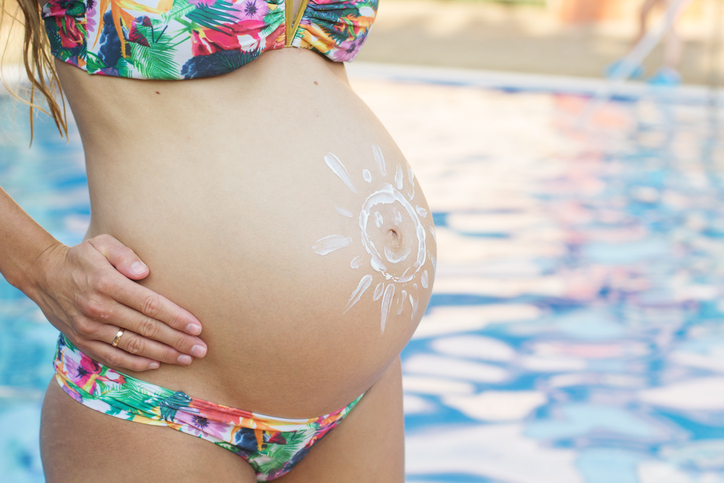73% of sunscreens are ineffective
What is your favorite type of sunscreen and how long have you been using it? A recent report by the Environmental Working Group looked at 880 sunscreens and found that 73% of them were ineffective or contained dangerous ingredients like oxybenzone and retinyl palmitate, which can lead to hormone issues and can potentially increase the risk of skin cancer.
Dr. Dennis Dudley is an endocrinologist or a hormone doctor that is now retired, but he continues to educate people about the importance of what you’re putting on their skin. A great concern is the silent but broad range of hormonal and neurological problems now related to chemicals in sunscreens and cosmetics with small molecules that enter the body freely. These are soluble organic filters all with very small molecular weights below 500 Daltons that pass through the skin and attain blood and tissue levels. These include but are not limited to oxybenzone, avobenzone, octisalate, homosalate, octocrylene, unencapsulated OMC, and 4-MBC among filters, and of course parabens the preservative.
There are now numerous conditions linked to hormone disruptors. These range from infertility, polycystic ovarian syndrome, endometriosis, fibroids, breast and uterine cancer, prostate cancer, oligospermia and male infertility, to name a few reproductive system problems. Non-reproductive disorders include, ADHD, asthma, Parkinson’s and Alzheimer’s, and thyroid cancer. These sunscreen and cosmetic chemicals likely represent the single most important source of human exposure to hormone disruptors and represent a clear and present danger to the reproductive and other endocrine systems.
 Pregnant women are at a greater risk
Pregnant women are at a greater risk
Many years ago, Dr. Dudley knew of a female endocrinologist who worked with pregnant women and she kept finding a chemical in fetal blood in the third trimester with the UV filter benzophenone and this caused great concern. “These UV filters were coming from women who were using brand name sunscreens,” he explains. The most common brand name filters are Banana Boat, Neutrogena, and Coppertone, all which include benzophenone. “The majority of consumers, including expectant nursing mothers have no idea that there are a group of UV filters used in perhaps 90% of brand name sunscreens in the U.S. and Canada that enter your blood and many of them are hormone disruptors.” The fact is that 97% of Americans have benzophenone in their blood and 85% of nursing mothers have at least one sunscreen filter in their blood.
Unfortunately, the people that create these sunscreens are dermatologists and they don’t know anything about hormones. “You as a patient and consumer deserve to know this: they enter your skin, into your brain and across the placenta and get to the fetus,” he says. Most pregnant women have heard that they can’t take aspirin, drink, or smoke because it can cause cranial bleeding, but they never hear about the dangers of sunscreen, especially when they see the word “organic.” “When people see the word organic, they think that it has to be safe,” he explains. “In this context, “organic” only means that it’s harvested carbon-based as opposed to mineral filters that come from the ground.”






